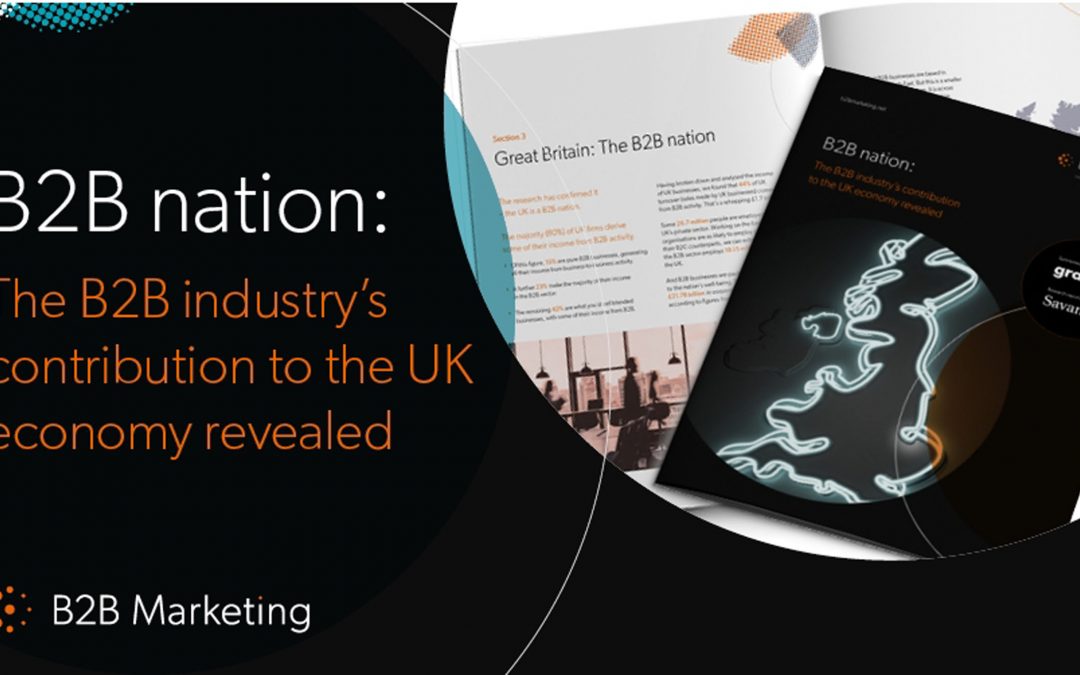The UK is a B2B nation, and has a huge influence on the global B2B market – yet this is something that is often overlooked, and until now has been difficult to quantify.
To redress this, B2B Marketing commissioned some primary research that surveyed 809 senior managers in UK businesses. The objective was to try and understand, and separate, the contribution that B2B makes to the UK economy. The resultant report has just been published, and makes surprising reading.
“We are no longer a nation of shopkeepers, we are a nation driving the success of other corporations around the world” James Farmer, co-founder, B2B Marketing
According to the research, nearly 40% of UK companies derive all/ majority of their income from B2B activity and a further 42% are blended business, with some of their income from B2B.
Looking at the figures, this means that B2B accounts for 44%, or £1.7 trillion, of the UK’s business turnover and some £21.78 bn corporate tax. Over 50% of FTSE 350 companies are pure B2B businesses and, unlike B2C, we have a global trade surplus on our B2B activity.
B2B focuses on four key sectors – business administration and support, information and communication technology, professional, scientific and technical and (surprisingly to me) construction. The production sector (which includes manufactuing) accounts for a relatively small number of B2B businesses, but the firms operating here tend to be extremely large and global outfits.
And whilst a third of B2B businesses are based in the South East, this is a smaller proportion than the UK average – B2B is bringing employment across the UK.
The B2B world is one that is dealing with high ticket, specialist products, complicated buying units, multi touch contacts and long sales cycles. Understanding customers’ needs and making sure that these needs are met is imperative. Identifying trends in values and behaviour is crucial to help B2B customers position their brands and offer effectively. Currently, the move away from industrialisation of products and services and towards the delivery of a more personal service (mass customisation) is transforming how B2B companies approach their customers.
From a brand, marketing and market research point of view, B2B is often viewed as the poor relation to B2C – but nothing could be further from the truth. This work is challenging, complex and stimulating.
As the figures show, B2B is no longer a ‘niche’ topic but very firmly in the mainstream. As the report says, ‘B2C may steal the headlines but B2B brings home the bacon!’.
Read the full report here.

